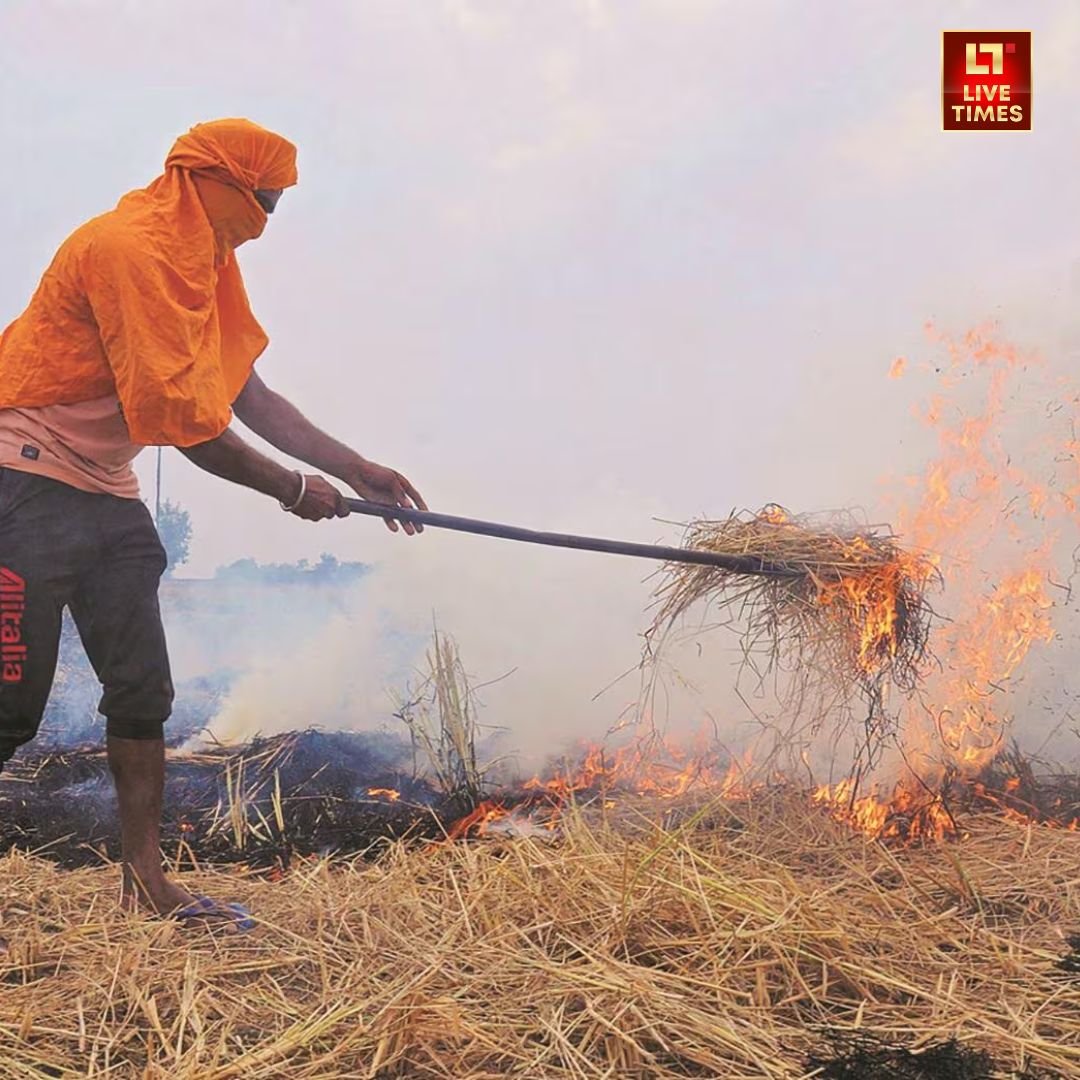16
Burning straw in Uttar Pradesh, Haryana and Punjab is one of the main causes of air pollution in the Delhi-NCR region. The ‘Parali Security Force’ will monitor the fields.
New Delhi: The Air Quality Management Commission (CAQM) has directed to set up a ‘straw security force’ at the district and block level to prevent incidents of stubble burning to Punjab, Haryana and Uttar Pradesh. In an order issued on Friday, CAQM, which formulates air pollution control strategy for Delhi-NCR and surrounding areas, has asked the authorities to map all the farms in the villages of these states, so that the most appropriate methods for management of paddy straw can be determined. These methods include crop diversification, in-situ management and fodder.
Police and agricultural officers will be involved in the force, will monitor the stubble burning
Burning stubble in these states is one of the main causes of air pollution in the Delhi-NCR region. CAQM has asked the states to set up a ‘Parali Security Force’ dedicated at the district/block level. This force will include police officers, agricultural officers and other officers who will monitor and stop burning of paddy straw. Apart from this, patrolling will also be increased especially in the late evening, when farmers can try to avoid satellite monitoring. Farmers found burning stubble will be fined. Also, red entries will be recorded in the records of the field and environment will be compensated.
Group of 50 farmers will be formed in each district for assistance
CAQM said that a dedicated nodal officer should be assigned to a group of 50 farmers in each district for effective monitoring and assistance. States have also been asked to make extensive reviews of available crop residue management (CRM) machines and discarding any older or non-functional equipment. CAQM said that a new difference analysis should be done and the plan to purchase new machines should be implemented by August 2025. It directed these states to provide rent-free machines to small and marginal farmers through custom hiring centers.
Officers have also been asked to establish adequate storage facilities for paddy straw lumps, including identifying the land of government or panchayat for storage. CAQM has emphasized the requirement of a district-level supply chain for paddy straw, so that its collection, storage and bio-energy production and use for various applications such as fertilizer can be ensured.


